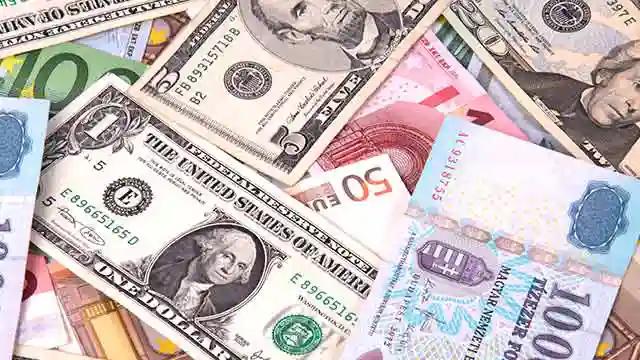World Bank Economist Says 97% Of Transactions In Zimbabwe Are In US$

A senior economist at the World Bank, Dhiraj Sharma, has said the Zimbabwean dollar is rapidly losing value, with 97% of transactions for basic commodities being conducted in United States dollars (US$).
Sharma presented these findings from the poverty, income, consumption, and expenditure surveys (PICES) conducted between July 2020 and January 2023 via telephone interviews by the Zimbabwe National Statistics Agency (ZimStat) in partnership with the World Bank and United Nations Children’s Fund. Nine rounds of the PICES survey were conducted during this period. He said:
One thing that the survey started to track on was the use of foreign currency on domestic transactions.
FeedbackSo overall, we see, to a larger extent, other currencies are being used almost exclusively. People use the Zimbabwe dollar for transactions for about less than 3% of the transactions. And this is for five key food items which are maize meal, cooking oil, rice, beef and bread.
HOT DEALS:
itel A70 - (128GB, 3GB RAM) $89,
itel A70 - (256GB, 4GB RAM) $99
itel P40 (128GB, 4GB), (6000mAh) $99
itel P40 (64GB, 4G), (6000mAh) $93
Cash on Delivery in Harare & Bulawayo. Tinotumira kwamuri inosvika.WhatsApp: 0783 450 793
- RBZ Forex Auction: Zimbabwe Dollar Official Rate
- Some Businesses Reject Zimbabwe Dollar
- Digital Currency To Stabilise The Zimbabwe Dollar – RBZ
Sharma reported that the prices of basic commodities are increasing rapidly and the Zimbabwean dollar is losing value, with some goods only being sold in US dollars. The parallel market rate for the US dollar is at $2 700 while the official rate is at $1,097. Sharma also noted that dollarisation is more common in rural areas than in urban areas. He said:
The US$ is being used for almost two-thirds of the US dollar or the South African rand for transactions, for 9% and the Zimbabwe dollar for 23%.
The use of foreign currency is more widespread in rural areas, which is also a novel finding. Among the five basic food items, the use of foreign currency was higher in some than others, for example cooking oil and rice.
Sharma said that people are using alternative currencies because the local currency is not functioning properly as a store of value and medium of exchange.
Despite growing calls to redollarise, the government has resisted these efforts. The local currency was reintroduced by President Emmerson Mnangagwa in 2019 after a decade of dollarisation. The currency has been experiencing depreciation since then.
More Pindula News
Tags
10 Comments
Leave a Comment
Generate a Whatsapp MessageBuy Phones on Credit.
More Deals





